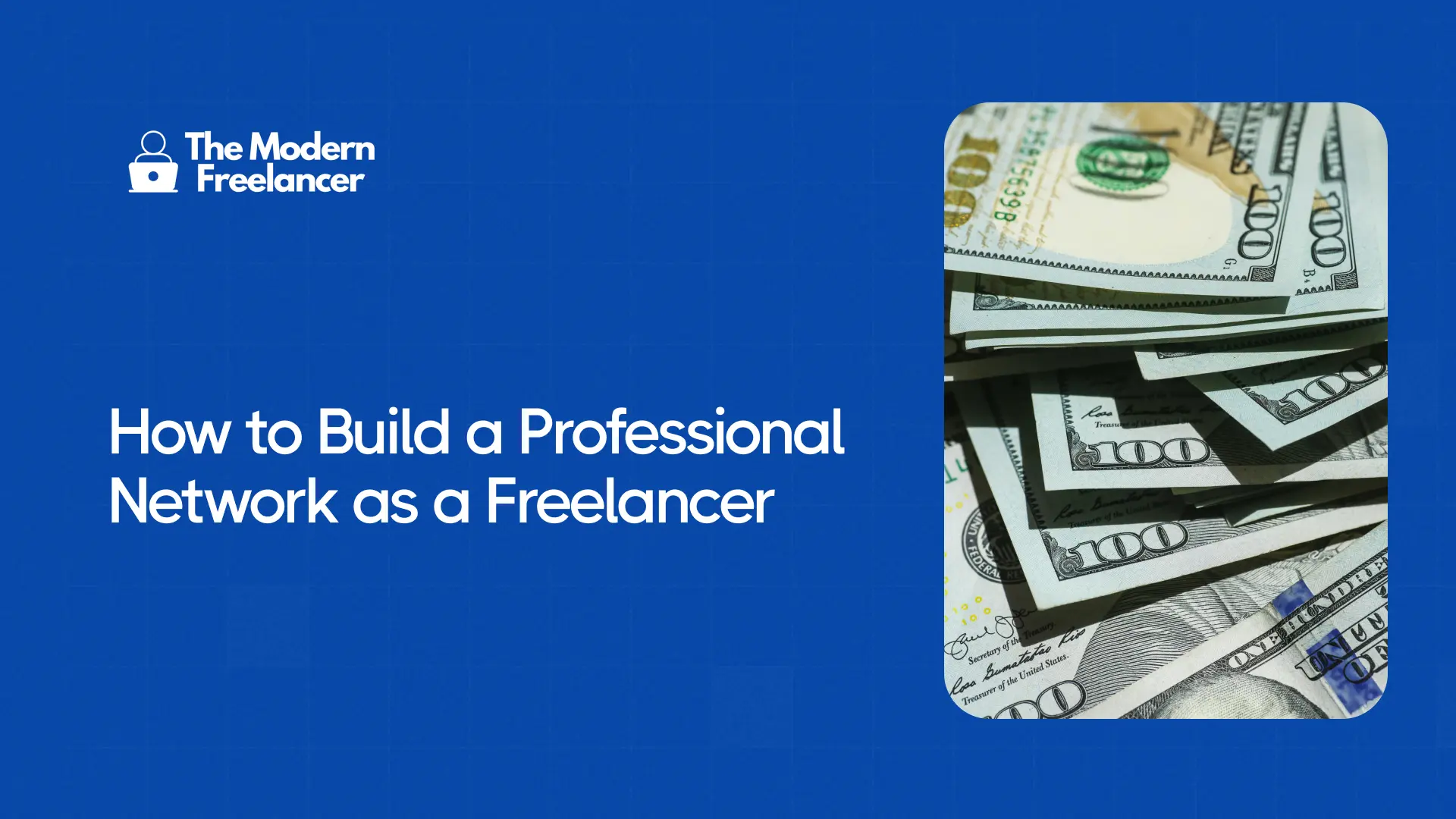How to Build a Professional Network as a Freelancer
Learn how to build a professional freelance network that sends you consistent deals. Get proven freelance networking tips and relationship strategies.

Heads up: Some of the links below are affiliate links, which means I may earn a small commission if you choose to use them — at no extra cost to you. I only recommend tools I personally use and trust.
Your Most Valuable Asset
Let's talk about the most valuable asset you'll ever build as a freelancer – and no, it's not your portfolio or your case studies.
It's a network of people who consistently send deals your way.
And I'm not talking about random LinkedIn connections or that stack of business cards collecting dust on your desk my dude.
I'm talking about a real, active network that functions like your own personal sales team – even while you sleep.
For some full-time freelance professionals (including me), a majority of revenue comes from referrals. No cold emails. No proposals. No follow ups. Just a steady stream of warm introductions.
But here's the thing.
After speaking to several freelancers who rely on networking to fill their calendar, I realized that none of these referrals come from traditional "networking."
They came from “relationship building” which is completely different from surface-level networking.
The Networking Mindset Shift That Changes Everything About Freelance Networking
It involves shifting your mindset from GETTING to GIVING.
You see, most networking advice feels gross because it is gross. It's built on the premise that every interaction in marketing strategy freelance needs to lead somewhere profitable. That every coffee chat needs to end in a referral. That every LinkedIn connection needs to become a lead.
Real networking isn't about working a room or collecting business cards.
It's about something much simpler: becoming someone worth knowing.
The biggest breakthrough happens when you stop thinking about what you can get from your network and start obsessing about what you can give.
Instead of asking "Who can help me get more clients?" start asking:
"Do I know a great growth hack that would be perfectly replicable for this person’s business?"
"What knowledge about this client’s industry can I share that might help them on the spot?"
"Is there a vendor I can introduce to this brand who would truly help their business?"
This shift from scarcity ("I need to get something") to abundance ("I have so much to share") changes everything.
Here's a real example:
Last month, a Paid Social freelancer in my community spent 30 minutes helping a small brand by auditing their Facebook ad account. Turns out the targeting wasn’t the issue, but the creative was. He threw a bunch of creative ideas at them to go execute on.
He knew they were too small to be a client. They couldn't afford his services. But they needed help, and he gracefully provided it.
Two weeks later, they introduced him to a larger brand who became a $5k/month client. The small client was so impressed by his knowledge that when that bigger brand mentioned they were looking for a new Paid Social freelancer, they rushed to refer him.
He didn't help them so he could get that referral. He helped them because he could. The referral was a natural byproduct of being helpful.
Now, of course, you don’t have time to do calls with everyone and their mothers. Instead…
What is Networking Freelance?
Most freelancers think “freelance networking” means showing up to events, handing out business cards, and hoping someone remembers their name.
But real freelance networking is about becoming known, liked, and trusted in the corners of the industry where your ideal clients spend time.
It’s creating a reputation for being helpful, skilled, and reliable. When you do that, people start sending you opportunities without you asking.
Focus On Building Deeper Relationships With Three Types Of People
- Complementary Service Providers who serve your ideal clients but don't compete with you. (for example: Paid Search freelancers if you do Paid Social.)
- Industry Connectors (podcast hosts, newsletter writers, community managers)
- Past Clients and Colleagues (who already know your value)
Make Sure You Follow Up Consistently With Your Freelance Network
You can use a simple spreadsheet to keep track of your connections, when you spoke to them last and a brief about them. Refer to The Right (And Wrong) Way To Follow Up With Prospects for CRM examples.
Remember: Building a powerful network isn't about being the most connected person in the room. It's about being the most helpful person in your specific corner of the world.
Freelance Networking Tips
Your network only works when you stay visible, helpful, and memorable. You don’t need to be loud. You don’t need to be salesy. You just need to be consistently present. Some simple ways to do that:
- Share useful insights on LinkedIn or Twitter – not generic advice, but real lessons from your client work.
- Send people articles, tools, podcasts, or resources that relate to their problems.
- Make introductions between smart people who should know each other.
- Show up in communities where your ideal clients hang out, not where freelancers hang out talking to each other.
When you do this consistently, people automatically think of you when a project comes up.
Your Action Step
Here's your simple system: Start three new conversations every day. Not pitches. Not follow-ups. Just conversations. Comment thoughtfully on posts. Reply to newsletters with insights. Share relevant resources. Make introductions.
When these lead to coffee chats or calls, make them about the other person. Come prepared with questions about their business, challenges, and goals.
Start today. Reach out to three people with no agenda. You might be surprised at what comes back your way.



